More than pretty photos: Tupoka Ogette talks about real diversity at universities
The public launch of the lecture series "How to deal with right-wing extremism" on 11 November 2025 was a wake-up call for many in the audience: racism criticism expert Tupoka Ogette spoke to the fully crowded Logensaal about how uncomfortable it can be for white people to free themselves from racist imprints and thought patterns, what this means for everyday university life and how thinking and living in a way that is critical of racism helps to counter the growth of right-wing extremism.
Racism is not just a problem of right-wing extremists; racist thought patterns characterise society and every individual. According to Tupoka Ogette, anyone who denies this as a white person and fails to recognise the privileges associated with skin colour is living in "Happyland". For many years, Tupoka Ogette has been teaching Germans to think critically about racism, to question power structures - and to move out of "Happyland". She does this in schools, daycare centres and companies, with her books (including "exitRacism: rassismuskritisch denken lernen." and "Und jetzt du. Rassismuskritisch leben"), in her podcast and, most recently, in the digital "Tupokademie". She has now presented her central ideas at the Viadrina.
Picture gallery
The border police from "Happyland"
Not a few people in the Logensaal must have felt addressed when the author and trainer spoke about white fragility, which often stands in the way of honest conversations about racism. It functions as a kind of border police of "Happyland" and comes into play when people who are asked about their racist statements or actions defend themselves instead of apologising. "There is an important difference between being racist and being socialised as racist - we all are," says Tupoka Ogette. Her work is not aimed at obvious racists, but at people who reject racism - and yet behave in an unthinkingly racist way.
In order to break out of these structures and, as Tupoka Ogette put it, "embark on a racism-critical journey", a basic knowledge of racism criticism is required. "Many discussions escalate because we haven't learnt to talk about it. Ignorance is combined with a sense of shame and guilt and results in a Molotov cocktail that torpedoes conversations," says Ogette.
Universities carry a special responsibility
In her presentation, Tupoka Ogette emphasised the central responsibility that educational institutions and universities in particular have when it comes to reproducing or breaking through racist thought patterns. "Universities archive the thought spaces and discourses of yesterday and at the same time shape those of today and tomorrow. Which texts are written, which theories are disseminated, which research is recognised and promoted, all of this creates reality," she warned.
Example of questions critical of racism at universities
- Which perspectives are visible, who remains invisible?
- Who writes about whom?
- Who speaks for whom?
- Who is included as a listener, reader, researcher and who is not?
- Which language reproduces and cements racism and other forms of discrimination and which language opens up new spaces to visualise and change power relations?
Participation in all ways instead of bold diversity
What makes Tupoka Ogette sceptical in her work with companies and other organisations time and again is the superficial emphasis on diversity. She warns that those who hold up these buzzwords as mere badges run the risk of instrumentalising "the others". It is too easy to make the premature assumption that there can be no racism where there are black people. "It's as if a man can't be sexist just because he knows a woman," she pointed out. If you want to promote diversity, you can't just leave it at likeable photos on the website, you have to question norms about who feels like they belong and who doesn't. "Heterogeneity must also be visible in the distribution of power; participation is needed at all levels," emphasised Ogette. "Especially now, when there are forces that act as if diversity can be turned on and off and what has been hard-won can be undone, it is important to understand and defend our diversity as an integral part," the author appealed.
These statements made it clear that Ogette's approach to criticising racism goes far beyond the individual. Her clear answer to the question posed by the lecture series "How to deal with right-wing extremism?" was: "Learning to think and live critically of racism is our core training against right-wing tendencies and for a fairer society." Tupoka Ogette has now lost her hope for a society free of racism, which sprouted with the Black Lives Matter movement, among others. But she decides to be confident every morning. And so she said: "The good news is: We can still prevent the complete shift to the right, we still have the opportunity to create a society that is critical of racism."
Racism criticism check as a prerequisite for recruitment
In the subsequent discussion, students, lecturers and people from urban society asked Tupoka Ogette for advice: How do you not lose courage in anti-discrimination work? How do you find the strength to talk about the racism you have experienced? How can universities make it possible for more black people to advance academically? Tupoka Ogette answered patiently, openly and sometimes surprisingly. When Prof. Dr Charlotte Köhler, Vice President for Digitalisation, asked her whether racism-critical education - similar to IT security training - should be made mandatory throughout the university, Tupoka Ogette agreed. She could certainly imagine a "racism criticism check" as a recruitment requirement.
By inviting Tupoka Ogette, the organisers of the lecture series have succeeded in engaging the municipal and university community. As Prof Dr Timm Beichelt put it in his welcoming address: "Tupoka Ogette's critical approach to racism stands for questioning not only others, but also oneself, for shifting the spotlight, so to speak, and illuminating oneself."
Translated by DeepL and edited
Back to the news portal
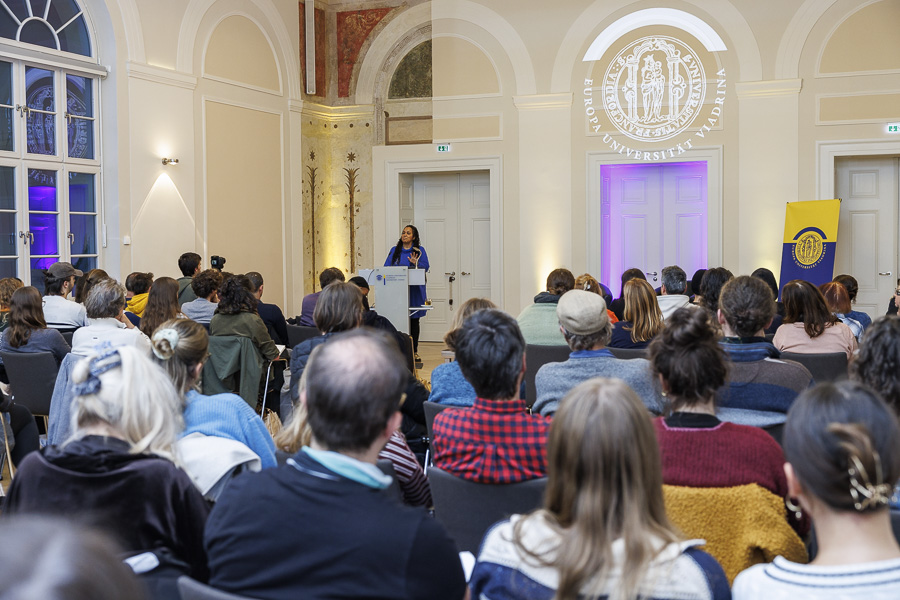
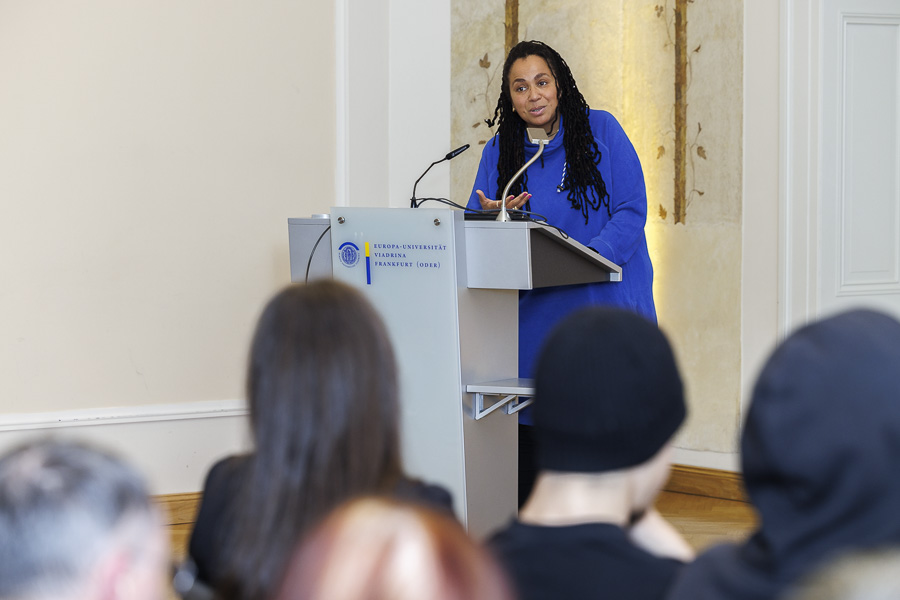
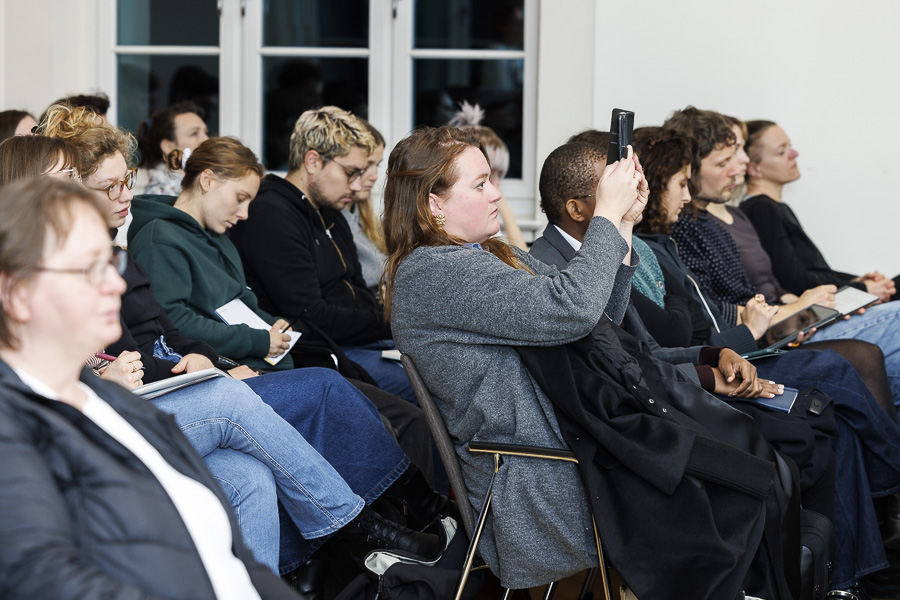
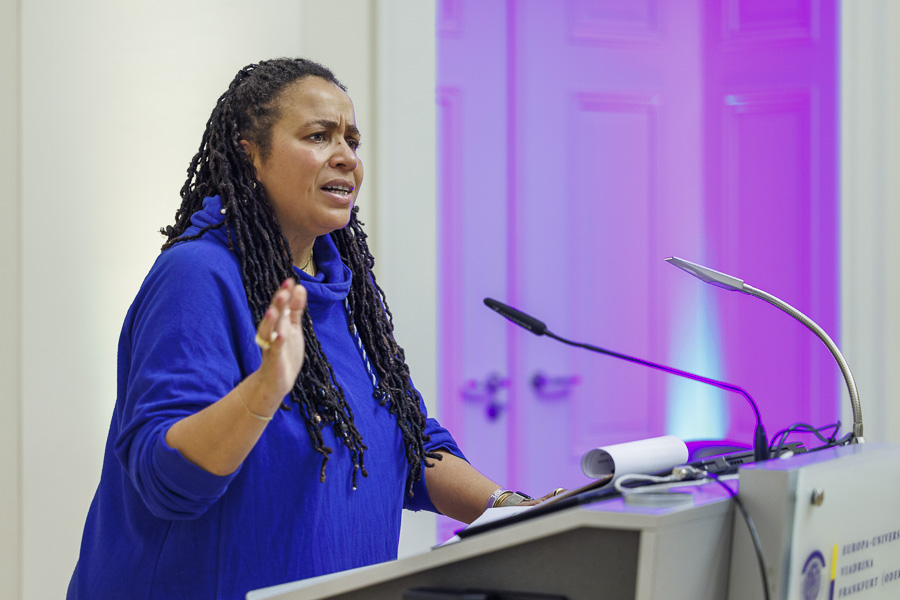
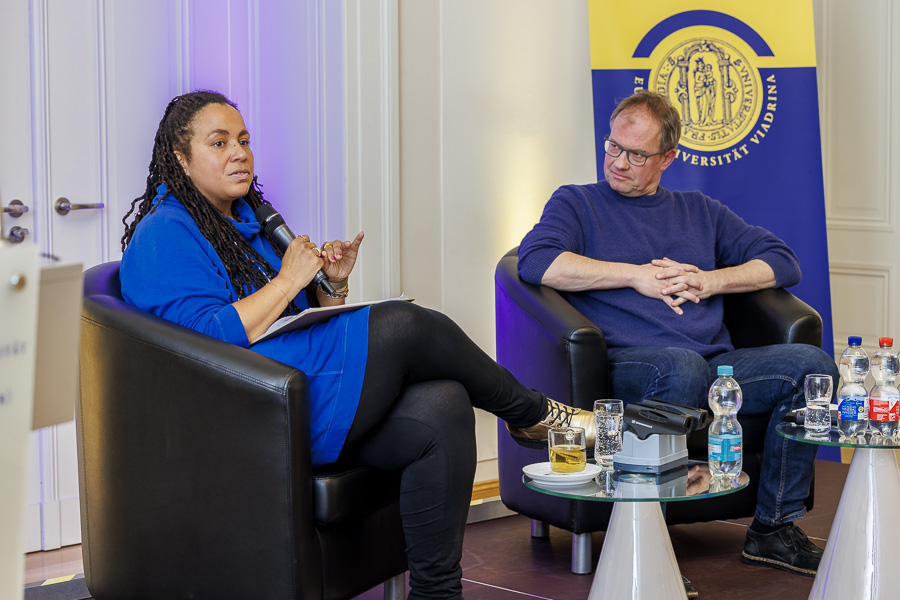
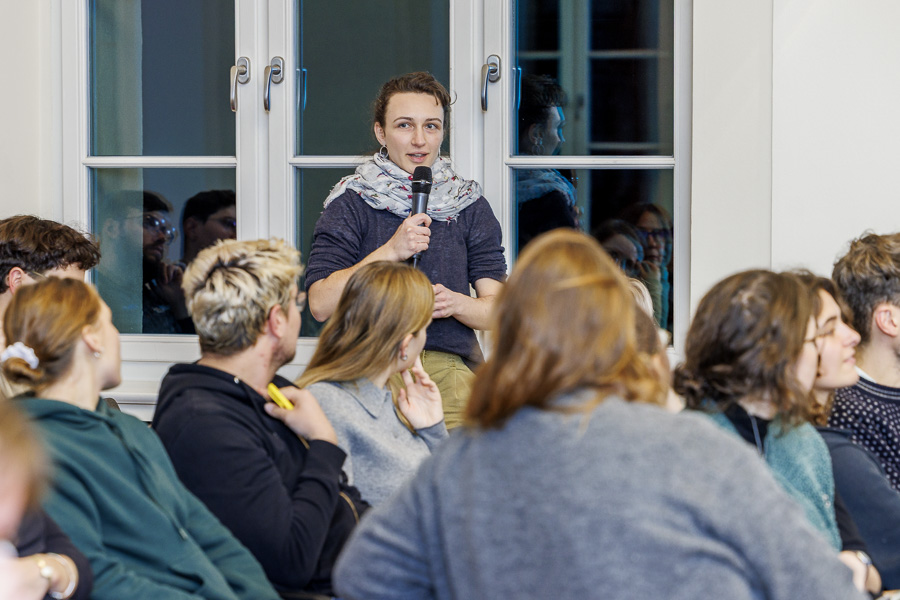
Share article: